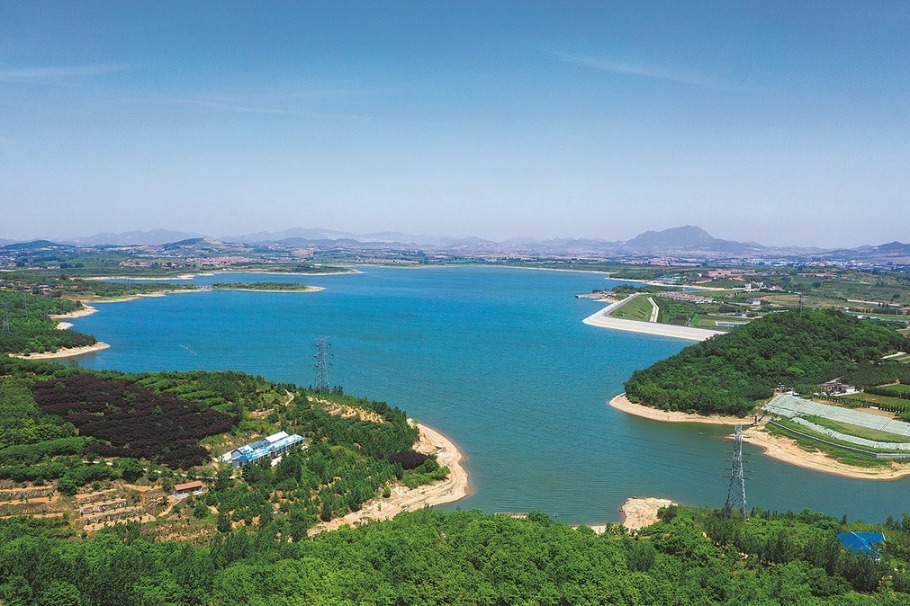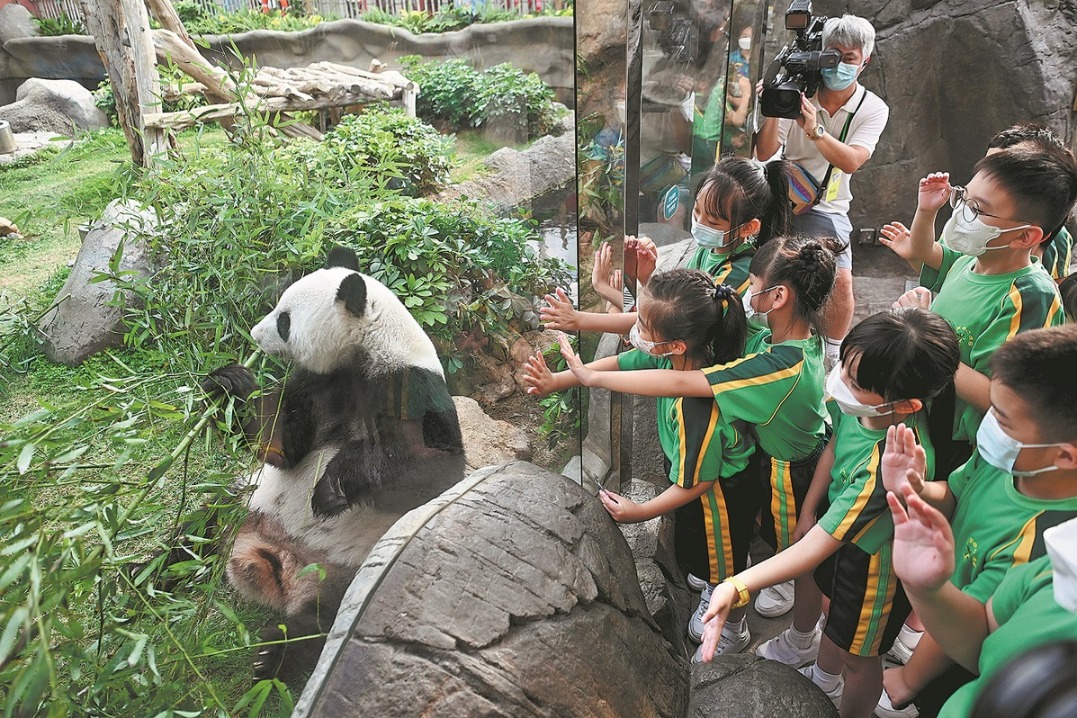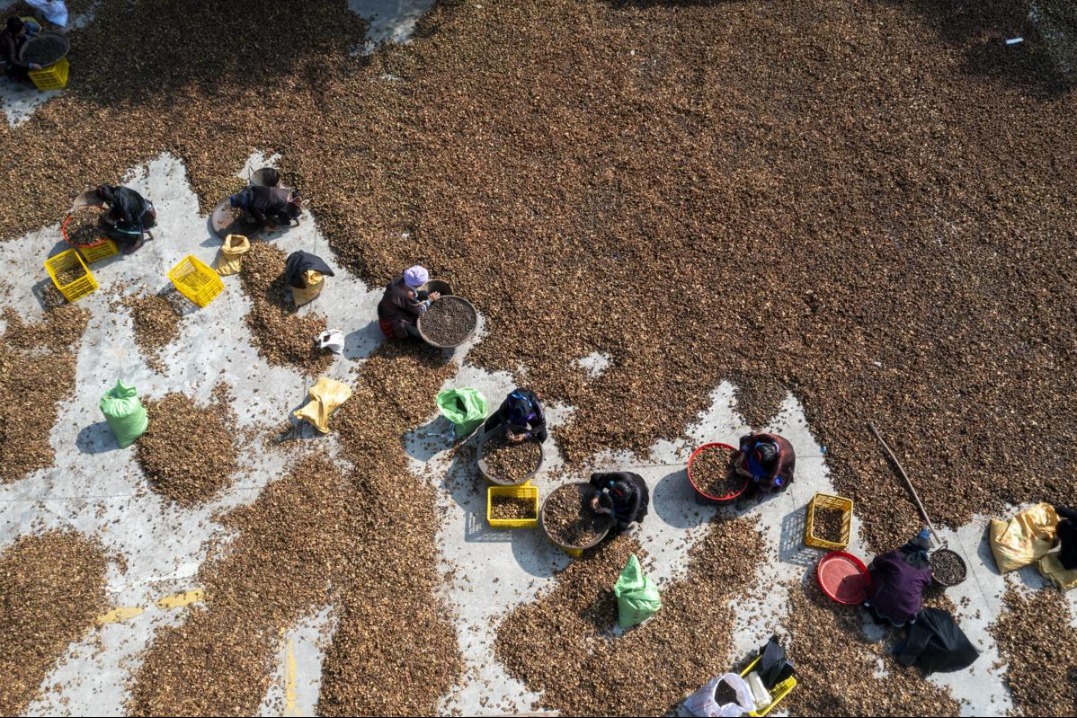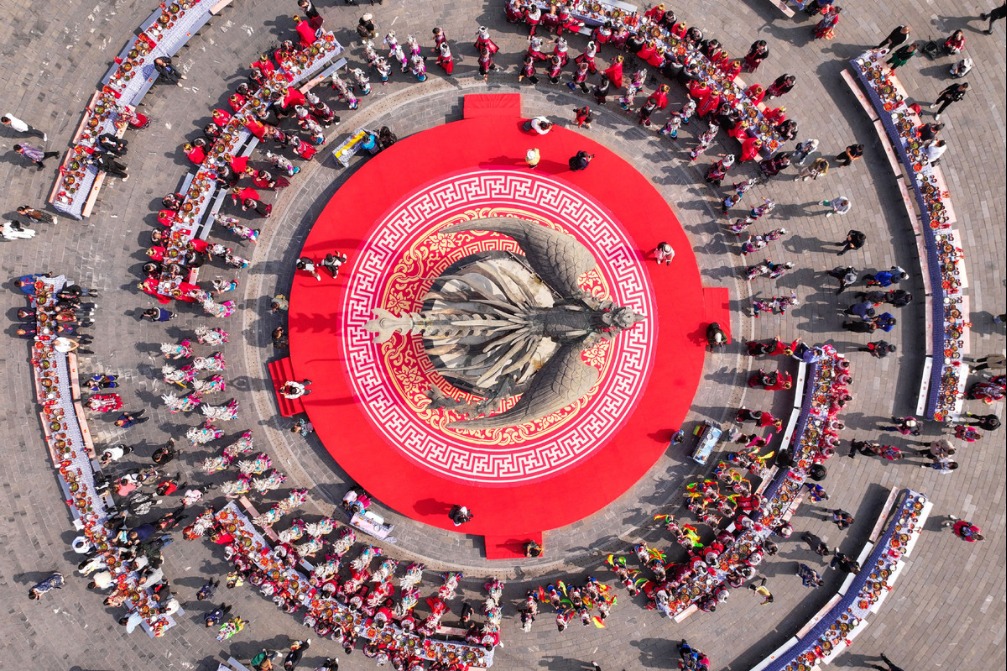Olive seeds from China's space station germinate on Earth

BEIJING -- Olive seeds that underwent space mutation experiments aboard the Shenzhou XIV crewed spaceship in 2022 recently germinated in the city of Longnan in Gansu province, Northwest China, according to the state broadcaster China Central Television.
Researchers plan to transplant the olive seedlings from 315 grams of seeds outdoors in 2026 to help them gradually acclimatize to the natural environment.
Space mutation experiments involve exposing plant seeds or tissues to extraterrestrial environment factors, such as microgravity, high radiation levels and extreme temperature variations, to induce genetic mutations.
Through the experiments, researchers expect to develop high-quality olive germplasm with desirable traits, such as high yield, superior quality, early maturity and strong disease resistance.
Longnan is a renowned "golden zone" for olive cultivation. By the end of 2023, the region had cultivated over 1.04 million mu (about 69,333 hectares) of olive trees, producing 54,000 tonnes of fresh olives, with a total output value of around 4 billion yuan (about $556 million).
- Sustainable travel key to global biodiversity conservation
- The world meets Shanghai: A showcase of top-tier services
- Well-preserved ankylosaur fossil identified as new dinosaur species
- Olive seeds from China's space station germinate on Earth
- 45 people sentenced to 50 months to 10 years in jail over 'conspiracy to subvert the state power' in Hong Kong
- China's Climate Envoy reaffirms unity with developing countries




































